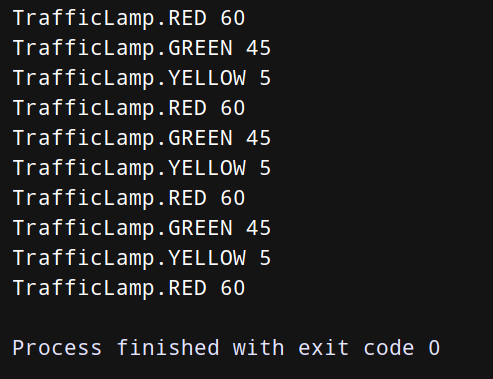每篇前言:
🏆🏆作者介绍:【孤寒者】—CSDN全栈领域优质创作者、HDZ核心组成员、华为云享专家Python全栈领域博主、CSDN原力计划作者
- 🔥🔥本文已收录于Python全栈系列专栏:《Python全栈基础教程》
- 🔥🔥热门专栏推荐:《Django框架从入门到实战》、《爬虫从入门到精通系列教程》、《爬虫高级》、《前端系列教程》、《tornado一条龙+一个完整版项目》。
- 📝?📝本专栏面向广大程序猿,为的是大家都做到Python从入门到精通,同时穿插有很多很多习题,巩固学习。
- 🎉🎉订阅专栏后可私聊进一千多人Python全栈交流群(手把手教学,问题解答); 进群可领取Python全栈教程视频 + 多得数不过来的计算机书籍:基础、Web、爬虫、数据分析、可视化、机器学习、深度学习、人工智能、算法、面试题等。
- 🚀🚀加入我一起学习进步,一个人可以走的很快,一群人才能走的更远!
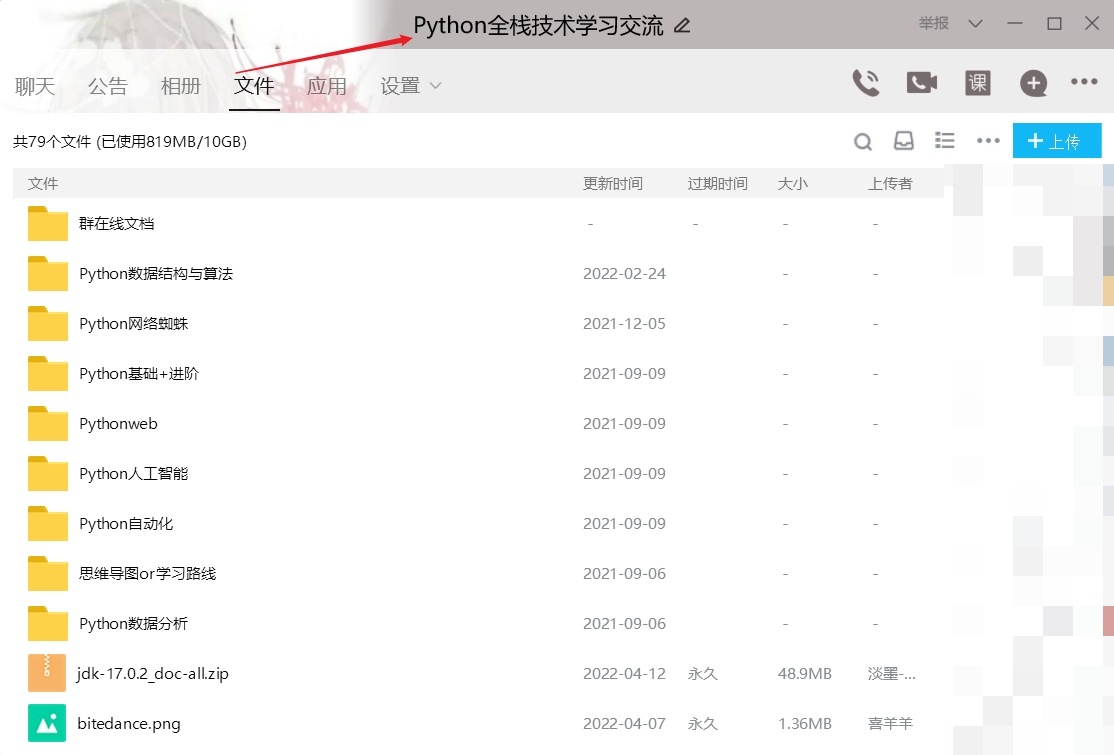
Python面向对象(四)
认真看了前面文章的小伙伴可能会有疑问,我前面不是讲过单例模式了吗?这是不是孤寒者给弄混了。
其实不然,有很多重要的知识点,我都是一遍又一遍的穿插讲解,就是想要引起大家的重视,让大家牢牢记在心中!
所以看这个知识点之前凭借自己的印象,看看能不能自己码出一个单例类!看看自己还能记住多少!
1.1 单例模式
- 确保某一个类只有一个实例,而且自行实例化并向整个系统提供这个实例,这个类称为单例类,单例模式是一种对象创建型模式。
# -*- coding: utf-8 -*-
"""
__author__ = 小小明-代码实体
"""
# 实例化一个单例
class Singleton(object):
__instance = None
def __new__(cls, age, name):
# 判断类有没有实例化对象
# 如果没有就创建一个对象,并且赋值为这个对象的引用,保证下次调用这个方法时
# 能够知道之前已经创建过对象了,这样就保证了只有1个对象
if not cls.__instance:
cls.__instance = object.__new__(cls)
return cls.__instance
a = Singleton(18, "dongGe")
b = Singleton(8, "dongGe")
print(id(a), id(b))
a.age = 19 # 给a指向的对象添加一个属性
print(b.age) # 获取b指向的对象的age属性

- 创建单例时,只执行1次
__init__方法:
# -*- coding: utf-8 -*-
"""
__author__ = 小小明-代码实体
"""
class Singleton(object):
__instance = None
__first_init = False
def __new__(cls, age, name):
if not cls.__instance:
cls.__instance = object.__new__(cls)
return cls.__instance
def __init__(self, age, name):
if not self.__first_init:
self.age = age
self.name = name
Singleton.__first_init = True
def __str__(self):
return "Singleton[%s,%s]" % (self.name, self.age)
a = Singleton(18, "dongGe")
b = Singleton(8, "dongGe")
print(id(a), id(b))
print(a.age, b.age)
print(a, b)

2.1 Enum枚举类
- 基本实现:
from enum import Enum
Month = Enum('Month', ('Jan', 'Feb', 'Mar', 'Apr', 'May', 'Jun', 'Jul', 'Aug', 'Sep', 'Oct', 'Nov', 'Dec'))
- 这样我们就获得了Month类型的枚举类,可以直接使用Month.Jan来引用一个常量,或者枚举它的所有成员:
for name, member in Month.__members__.items():
print(name, '=>', member, ',', member.value)
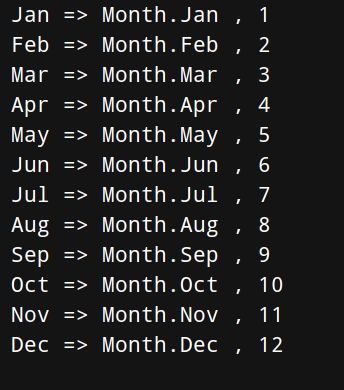
- value属性则是自动赋给成员的int常量,默认从1开始计数。
- 如果需要更精确地控制枚举类型,可以从Enum派生出自定义类:
# -*- coding: utf-8 -*-
"""
__author__ = 小小明-代码实体
"""
from enum import Enum, unique
@unique
class Weekday(Enum):
Sun = 0
Mon = 1
Tue = 2
Wed = 3
Thu = 4
Fri = 5
Sat = 6
for name, member in Weekday.__members__.items():
print(name, '=>', member, ',', member.value)
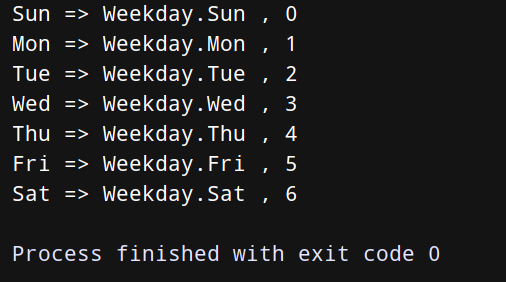
- @unique装饰器可以帮助我们检查保证没有重复值。
- 访问这些枚举类型可以有若干种方法:
Weekday = Enum('Weekday', ("Mon", "Tue", "Wed", "Thu", "Fri", "Sat", "Sun"))
for i in range(1,8):
print(i,Weekday(i),Weekday(i).name)
print(Weekday.Tue)
print(Weekday['Tue'])
print(Weekday.Tue.value)
print(Weekday(1))
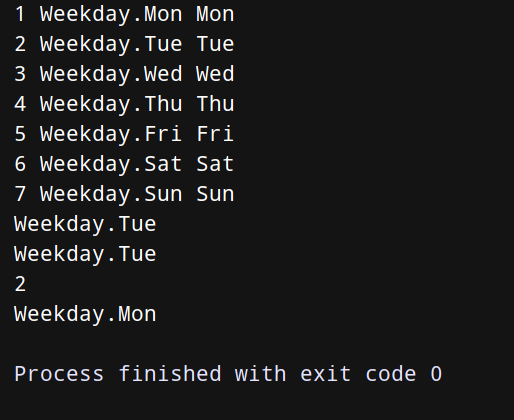
-
可见,既可以用成员名称引用枚举常量,又可以直接根据value的值获得枚举常量。
-
交通灯示例:
# -*- coding: utf-8 -*-
"""
__author__ = 小小明-代码实体
"""
from enum import Enum, unique
@unique
class TrafficLamp(Enum):
RED = 60
GREEN = 45
YELLOW = 5
def next(self):
if self.name == 'RED':
return TrafficLamp.GREEN
elif self.name == 'GREEN':
return TrafficLamp.YELLOW
elif self.name == 'YELLOW':
return TrafficLamp.RED
current = TrafficLamp.RED
for i in range(10):
print(current, current.value)
current = current.next()
